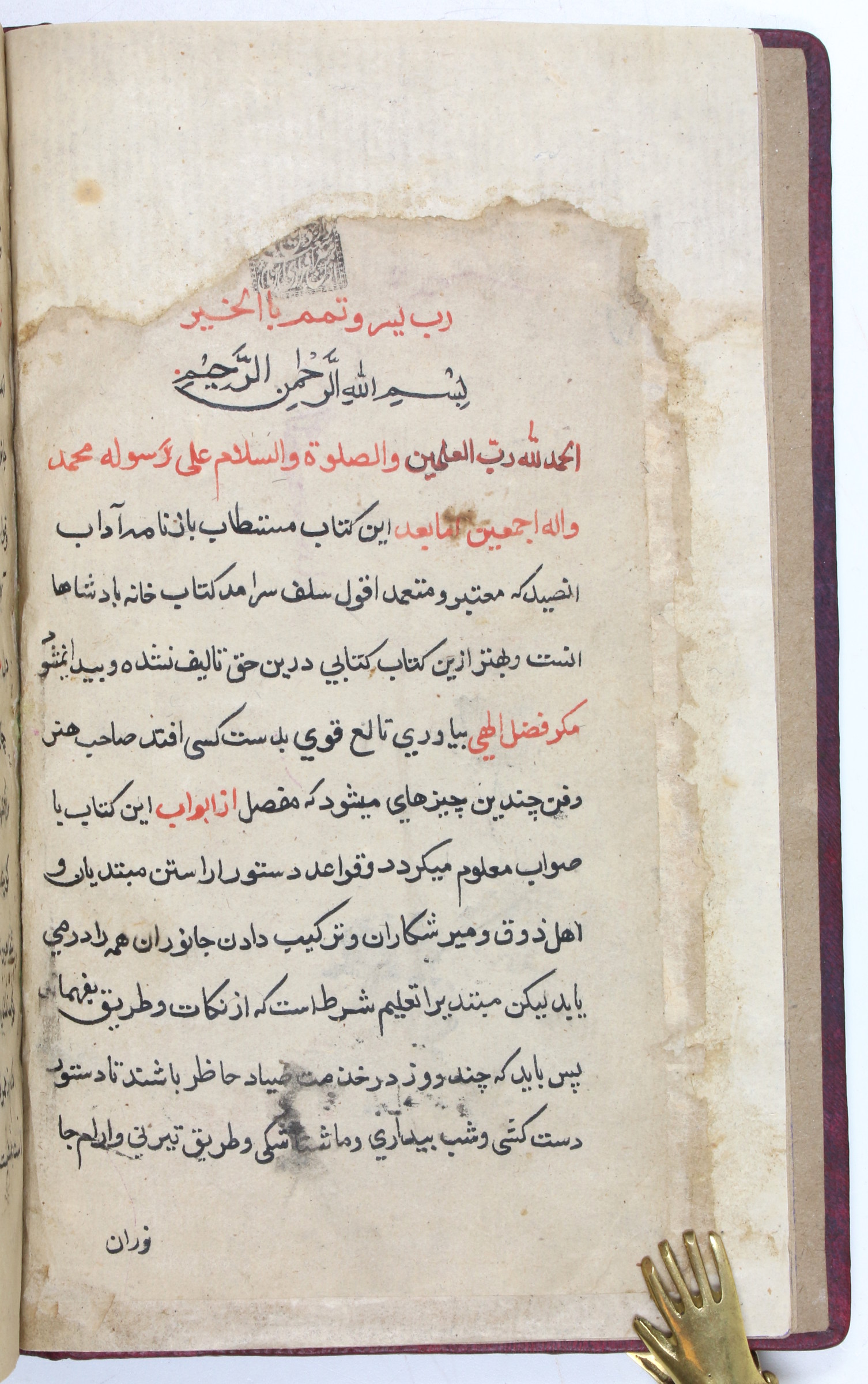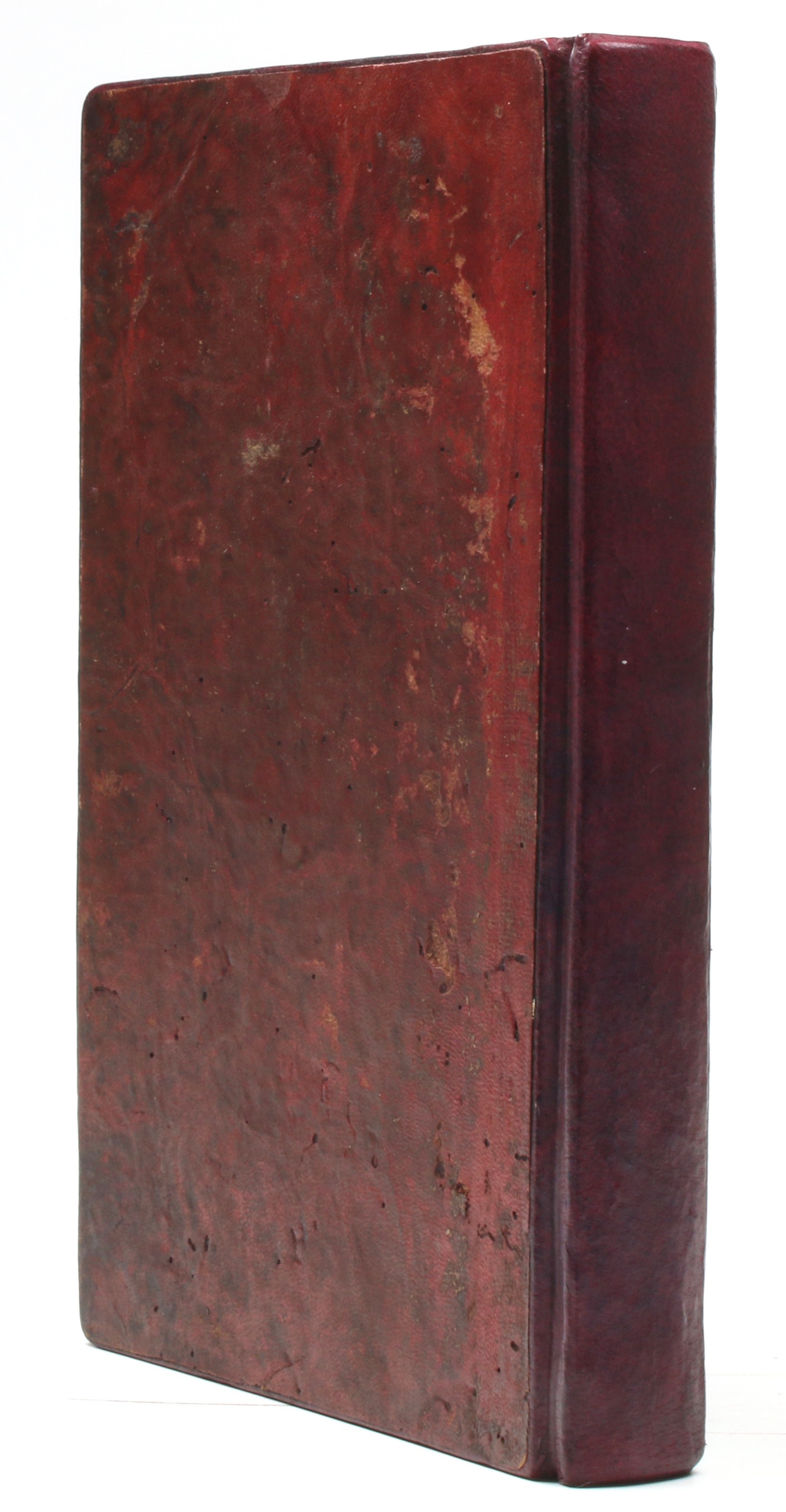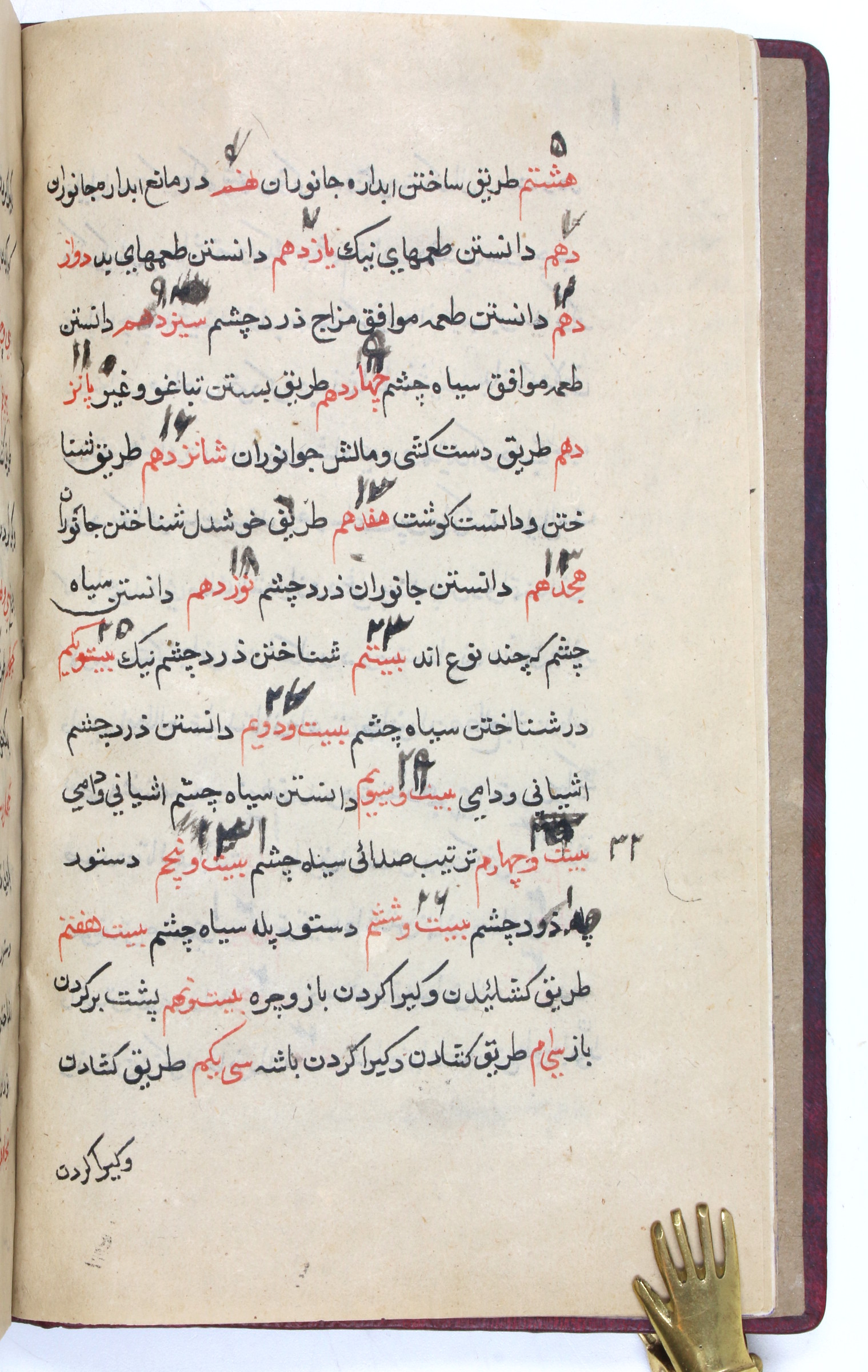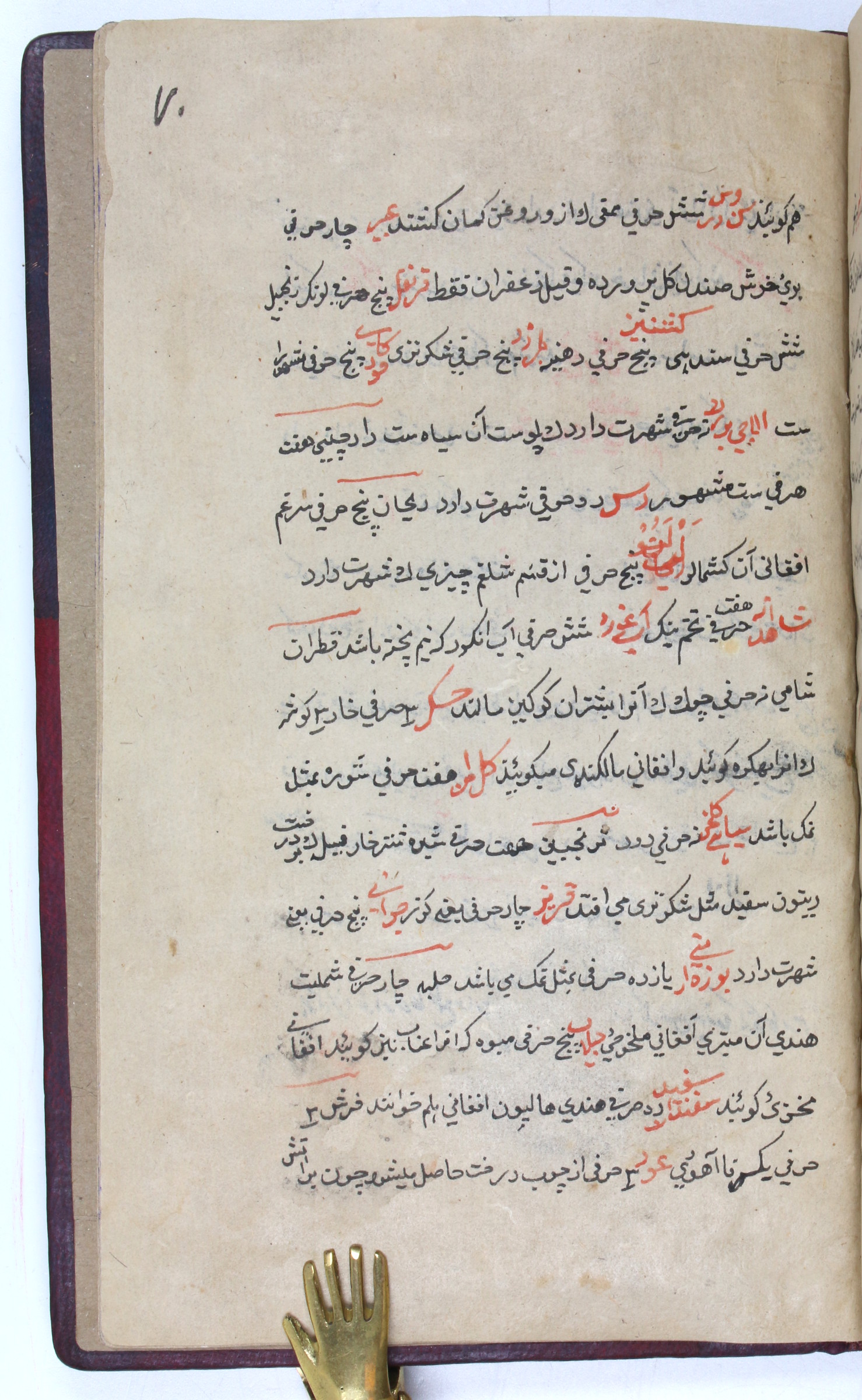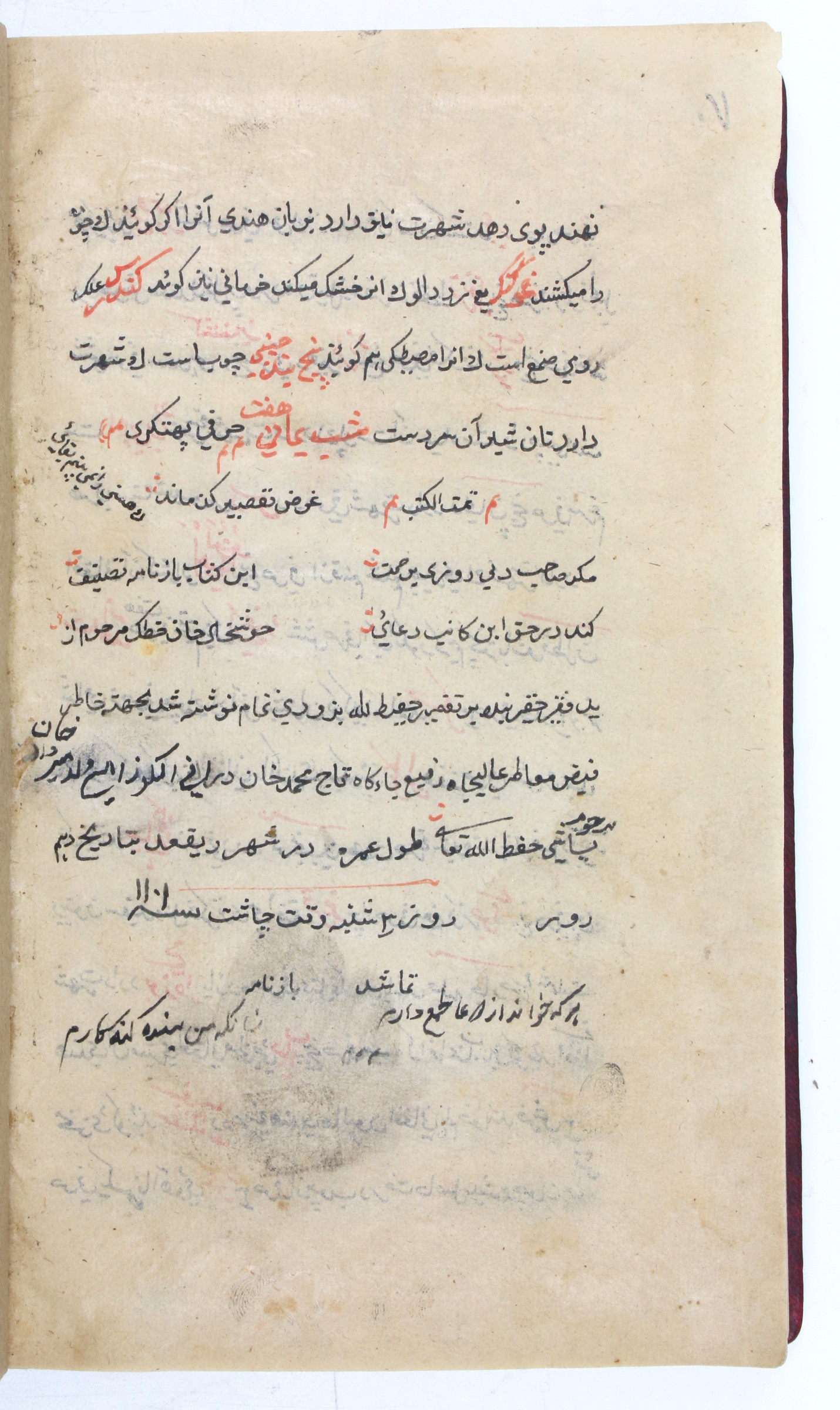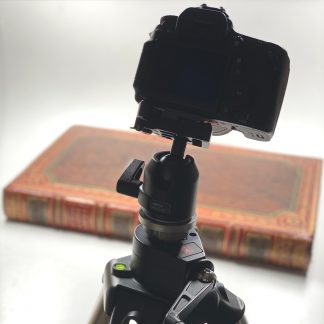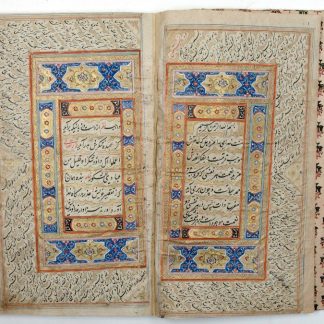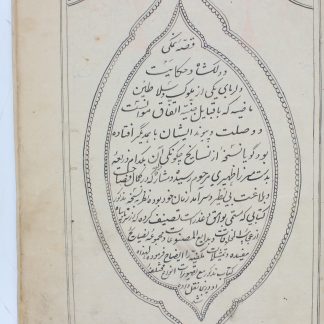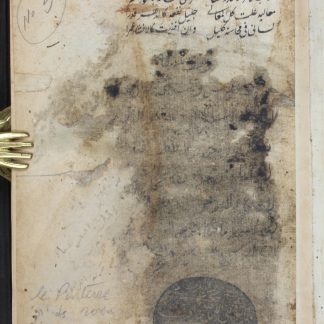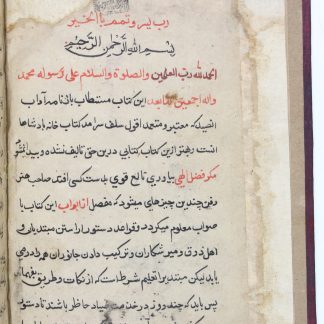A rare and early manuscript on falconry, written within a year of the author's passing
Baz-nama [The Book of Falconry].
8vo (150 x 240 mm). Persian manuscript on paper. (4), 62 (misnumbered: 63, omitting fol. 19), 64 (misnumbered: 58, leaping back to 24 after 23 but lacking fols. 38-39) ff.; 64 (instead of 70) ff. (lacking fols. 25-30). 15 lines of black and occasional red ink script. Rebound in full red morocco using the original covers.
€ 15.000,00
A collective manuscript on falconry, including the famous "Baz-nama" of Khushal Khan, the Afghan national poet, copied in the area of Afghanistan within a year after the passing of the author.
This fine and early manuscript contains two separate treatises on falconry, the latter one being the "Book of Falconry" of Kushal Khan Katak, the father of Pashto literature, written in verse. The first English translation, prepared by Sami ur Rahman and dedicated to Sheikh Mohammed bin Rashid Al Maktoum, Ruler of Dubai, appeared in Islamabad as recently as 2014: "What makes Khushal's 'Baaz Nama' unique is its poetical form. Perhaps there is no other work in world literature that treats the subject matter in verse on the one hand and keeps its systematic exposition and professionalism intact on the other [...] Khushal's manual is pretty concise and cogent. There are no long-drawn and tedious accounts. The style and diction are extremely down-to-earth" (translator's note, p. xiv).
The present manuscript contains a colophon at the end stating that it was copied by Muhammad Khan in 1101 AH, within a year of the death of its author on 5 Jumada I, 1100 AH, and it may thus command a high degree of textual authority. A renowned Pakistani warrior, Khushal Khan Khatak (1613-89) long served the Mughal Empire, but when he was expelled from his tribal chiefdom, he turned against his Mughal lords, promoted Pashtun nationalism, and encouraged revolt against the Mughal Empire. His works, mostly written in Pashto, are considered the foundation of modern Afghan literature.
A few occasional stains and ink smudges; lacks six leaves according to foliation and catchword. The first treatise in this volume, by an unidentified author, is in two parts with an index after the first but apparently not complete, lacking the end of the second half, as well as two leaves. First leaf extensively remargined but without loss to text; a few old waqf stamps and occasional marginalia.

